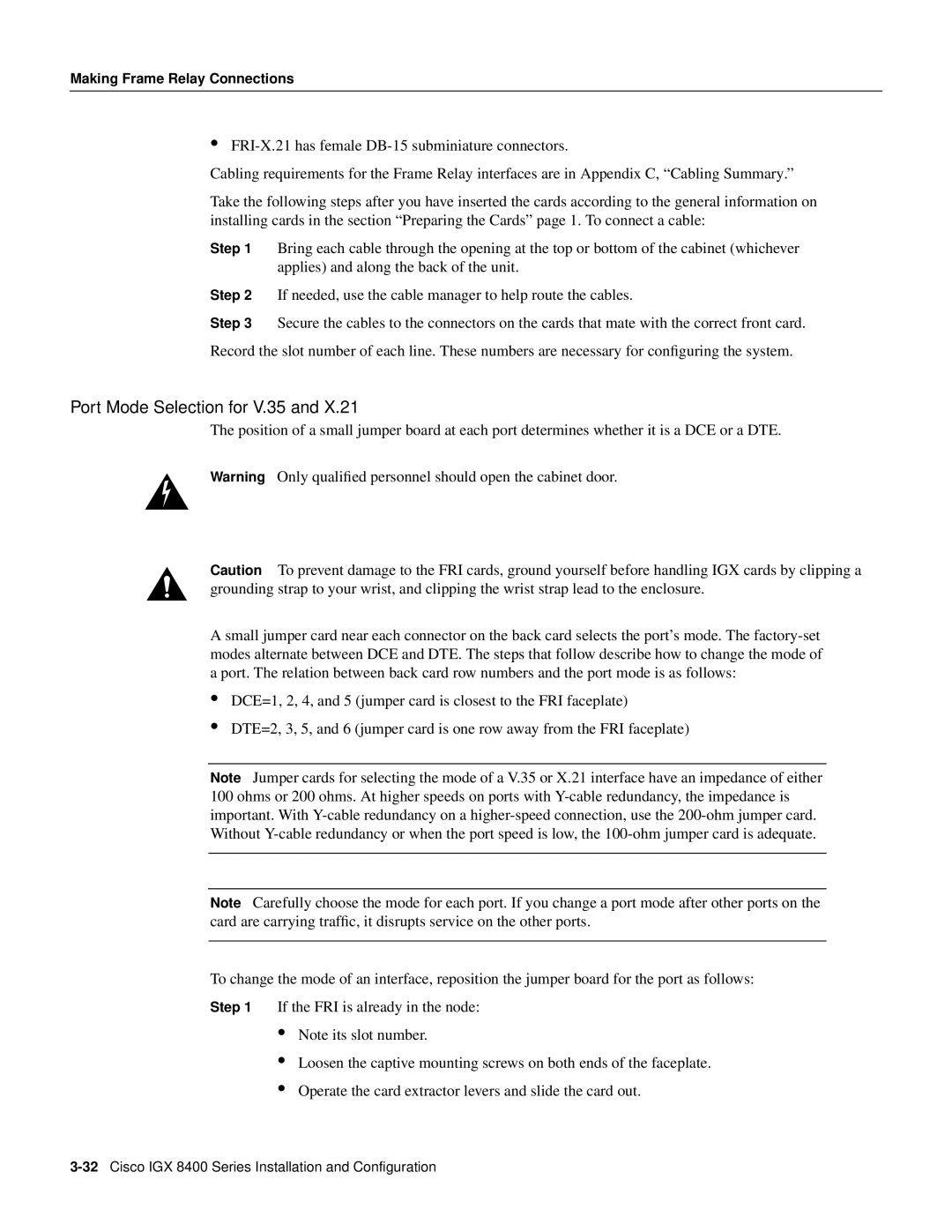
Making Frame Relay Connections
•
Cabling requirements for the Frame Relay interfaces are in Appendix C, “Cabling Summary.”
Take the following steps after you have inserted the cards according to the general information on installing cards in the section “Preparing the Cards” page 1. To connect a cable:
Step 1 Bring each cable through the opening at the top or bottom of the cabinet (whichever applies) and along the back of the unit.
Step 2 If needed, use the cable manager to help route the cables.
Step 3 Secure the cables to the connectors on the cards that mate with the correct front card.
Record the slot number of each line. These numbers are necessary for configuring the system.
Port Mode Selection for V.35 and X.21
The position of a small jumper board at each port determines whether it is a DCE or a DTE.
Warning Only qualified personnel should open the cabinet door.
Caution To prevent damage to the FRI cards, ground yourself before handling IGX cards by clipping a grounding strap to your wrist, and clipping the wrist strap lead to the enclosure.
A small jumper card near each connector on the back card selects the port’s mode. The
•
•
DCE=1, 2, 4, and 5 (jumper card is closest to the FRI faceplate)
DTE=2, 3, 5, and 6 (jumper card is one row away from the FRI faceplate)
Note Jumper cards for selecting the mode of a V.35 or X.21 interface have an impedance of either 100 ohms or 200 ohms. At higher speeds on ports with
Note Carefully choose the mode for each port. If you change a port mode after other ports on the card are carrying traffic, it disrupts service on the other ports.
To change the mode of an interface, reposition the jumper board for the port as follows:
Step 1 If the FRI is already in the node:
•Note its slot number.
•Loosen the captive mounting screws on both ends of the faceplate.
•Operate the card extractor levers and slide the card out.
